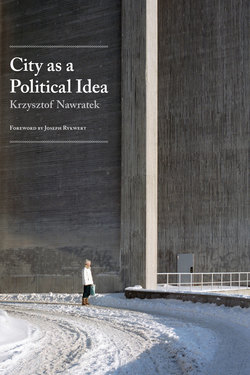Читать книгу City as a Political Idea - UNIV PLYMOUTH - Страница 5
На сайте Литреса книга снята с продажи.
ОглавлениеI.
Before
Cities are growing. Not all of them and not everywhere, but the fact of their growth and increasing importance is beyond doubt. What does it actually mean, though – that cities are growing? Does it only mean that they increase their space, crawl around and devour surrounding towns and villages? Or that they increase their number of inhabitants, or grow their GDP? We know that these are the cities in which the modern world’s social, economic, political and cultural lives concentrate. Cities today appear almost as powerful as ever, and yet they are in crisis. The standard of living in cities in most countries of the world is dropping dramatically, and even if – as in China – the GDP growth of some of them is close to 20%, the level and quality of city life is still not improving, and sometimes deteriorating.
People flee the cities. In the United States, so-called urban sprawl – the process of suburbanisation, moving to the suburbs – is in full swing. In the former GDR (German Democratic Republic), we can observe fascinating shrinking cities. In Poland too, more and more people want to live in the suburbs, and if possible move to a house with a garden. However, the biggest weakness in modern cities concerns the political arena. Devotees of European Cities gladly refer to the Greek polis, and the Polis was primarily a political concept (it is from the word polites – which denotes fully fledged citizens of a Polis – that the word politics comes, after all). Yet despite economic growth, despite the fact that national or international political institutions locate their headquarters in the cities, modern cities have almost no political significance in themselves. Thus, despite city planning and population growth, the Cities are dying. They die as a political idea and as a way of life for their citizens based on self-managing communities. So while at first glance it may seem that the City is experiencing staggering growth today, in fact, there is exactly the opposite process going on. Of course, the external, physical dimension of the city is growing, but what grows, what is still called the City, is not its core – it is a mutated tumor, a caricature of the City. It is an ‘urbanised area’ rather than the City. Cities are dying and I do not think that we can stop this process. The death of the City does not yet mean the end of the idea that the City was, that contributed to the history of Europe and the world. Cities are dying as a concept of community life but this death does not mean that the story ends. There is a life after death. The term ‘urbanised area’ is a description of a certain socio-spatial phenomenon, while the City was a project of political, social and economic development. Above all, political. After the death of Cities we can expect there to be something new, something that will be a new idea of themselves for people who live in large groups within small areas. The death of the City may be the resurrection of the Polis. Polis, understood as a way of managing the community which lives in the ‘urban area’ formerly known as the City.
The City’s life after death is, above all, a political concept of how people organise their lives as a community in space. And that is what this book is about. It is not just about city urbanism, architecture, economics and hundreds of other matters which relate to cities. It is about the death of the City, its causes and signals of what it might become. This is a political book: its purpose is political.
This book would not exist but for the help and kindness of many people. I must thank my publisher, Janek Sowa, for daring to publish it in Poland; Michał Herer, for his comments and suggestions concerning the philosophical aspects of this book; Krzysztof Kafka, for our private and public discussions about urban planning, space and politics (published online at www.miejsca.org); Magdalena Piekara, for her critical comments; and Anna ‘Maug’ Grzybowska, for supporting me throughout the whole process of writing and thinking. Thank you also to my wife Katarzyna, without whose faith in this book, and in me, it would have not succeeded. Finally, I thank my late father, Henryk Nawratek, who first taught me to look at and think about the City.
For the new English language edition of this book, I am deeply grateful to the Polish Cultural Institute in London, the Book Institute in KrakÓw and the Faculty of Arts at Plymouth University. I would also like to thank my translator Agata Pyzik and my editor Gavin Thomas, without whose passion and patience you would not be able to share my vision today.
Thank you also to all those not mentioned here who have supported me. What is good and valuable in this book, I am happy to share with those mentioned above. For all the errors, only I am responsible.
